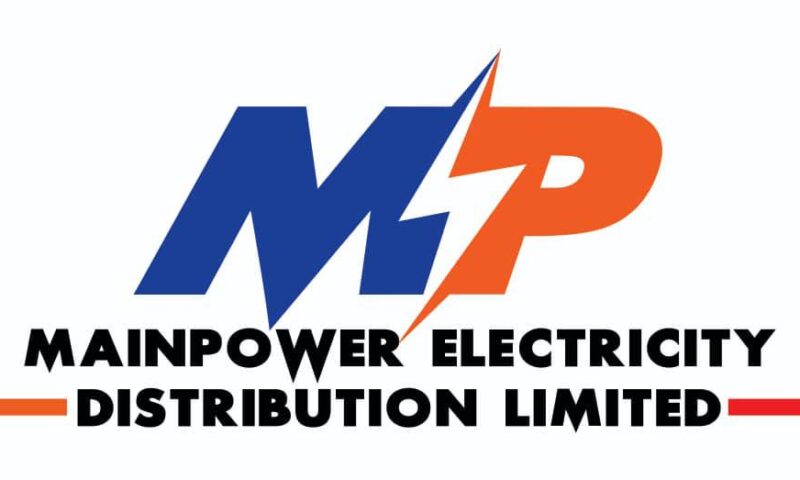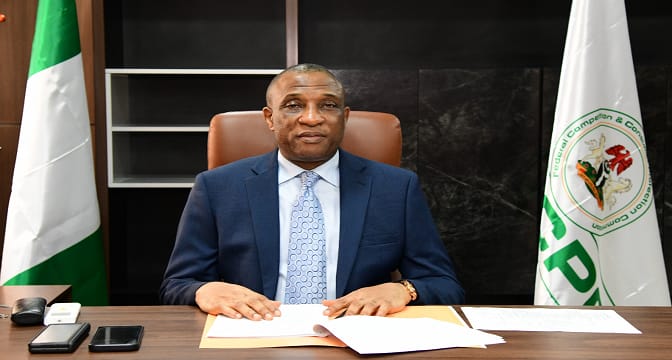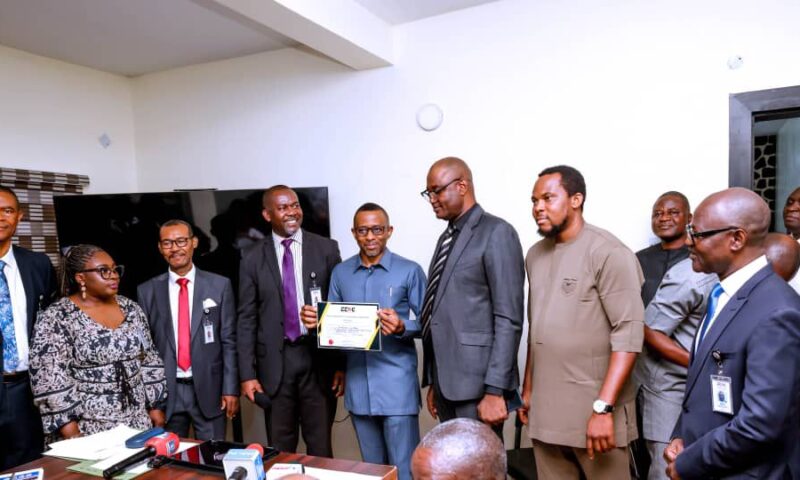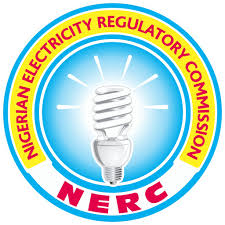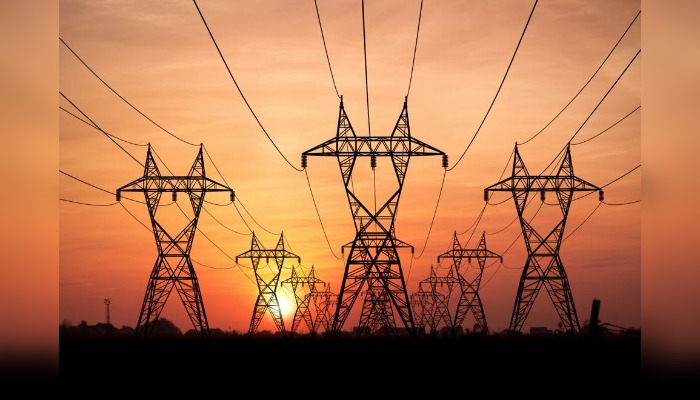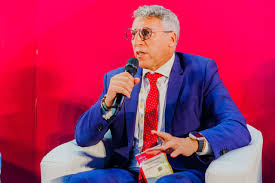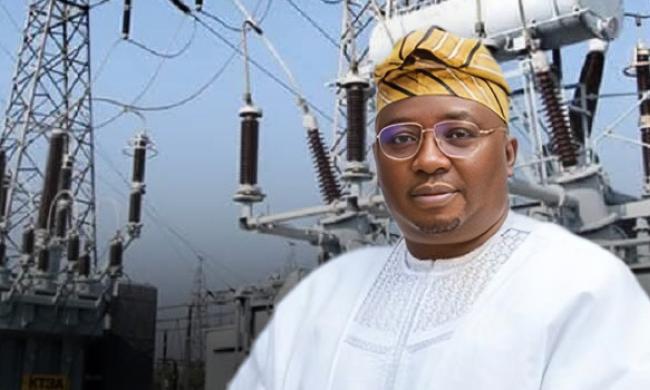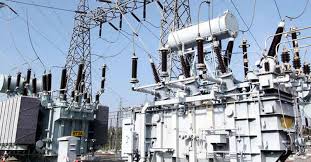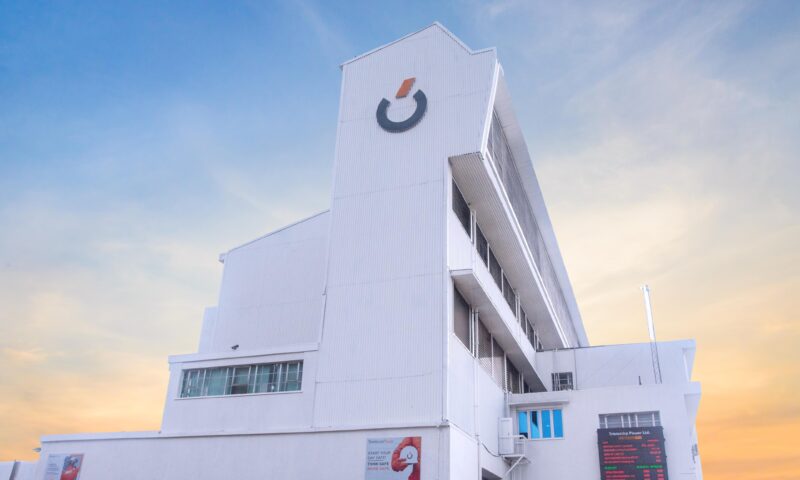All Posts in "Power"
Meter Phase-out:FCCPC Meets DisCos,Vows To Protect Consumers
EERC Assumes Full Regulation Of Enugu State Electricity Market
NERC Fixes October 24 For Public Hearing On Frequent Grid Collapses
Mohammed Shosanya
The Nigerian Electricity Regulatory Commission (NERC), has fixed October 24 to conduct an investigative public hearing to address the incessant grid collapses in the country.
In a notice posted on its Twitter handle,the Commission said that the hearing would hold at its Hearing Room, Fourth Floor, Plot 1387, Cadastral Zone Central Business District, Abuja.
It said:“All stakeholders including Civil Society Organisations (CSOs), and the general public are invited to the hearing”
It is mandated to conduct public hearings on critical issues relating to the Nigerian Electricity Supply Industry (NESI),the Commission said in the notice.
It added:“In line with Section 48, subsection 1 of the Electricity Act 2023 (Amended),NERC is mandated to conduct public hearings on critical issues relating to NESI.
“The Commission has noted with concern the recent escalating incidences of grid disturbances often leading to marked outages in several states.
“Thus reversing many of the gains recently achieved in reducing infrastructure deficit and improving grid stability”.
EKEDC Restores Vending Services
Mohammed Shosanya
Eko Electricity Distribution Company (EKEDC),has announced the full restoration of its vending services following a seamless migration to a new, state-of-the-art platform designed to enhance operations and significantly elevate customer experience to a new height.
The upgraded platform is now live, empowering customers with unparalleled convenience and transparency,a statement said on Monday.
According to the statement,the new platform introduces several key features, such as,self-service portal, enhanced complaint tracking,improved user experience,meter data/billing management and streamlined workflow automation.
EKEDC appreciated its customers’ patience and understanding during the transition period, which lasted from 6 PM on Friday, October 18, to 6 AM on Monday, October 21, 2024.
It explained that temporary downtime was necessary to facilitate the upgrade and ensure the optimal performance of the new platform.
The Acting Chief Executive Officer, Mrs. Rekhiat Momoh,said:“The team is excited to unveil this innovative platform, which reflects our commitment to delivering excellent service and meeting the evolving needs of our customers. This upgrade marks a significant milestone in our journey toward transforming our operations and offering more value to our esteemed customers.”
Nigeria Records Third Collapse Of National Grid In One Week
Nigeria’s Power Sector Enabler For Investment,Growth-Egbin Power Boss
Mohammed Shosanya
Egbin Power Chief Executive Officer, Mokhtar Bounour, says there are opportunities for investment and growth in the power sector despite the challenges besetting it.
He spoke during the Leadership Summit of the 2024 Nigeria Energy Conference, held in Lagos. The panel session, themed “Gas to Power Generation: Market Dynamics and Energy Security,” brought together key industry leaders to discuss the challenges and opportunities in Nigeria’s power sector.
According to him,Egbin Power has ensured strong partnerships with suppliers and regulators to fulfill its obligations and contribute to the sector’s development.
The panel session featured industry experts who also noted that increased investment, collaboration, and commitment to resolving the identified challenges would further improve the sector.
Bounour underscored the importance of synergy among stakeholders in the energy sector to further develop and catalyse the country’s socio-economic growth.
Discussing the crucial path toward the growth of the energy sector, Bounour emphasised the interconnected nature of the energy sector, noting that synergy among the players in the value chain would drive further development. He also highlighted the critical role of gas in power generation in Nigeria.
He said: “All stakeholders must work together to create an efficient system. All of us – from the GenCo, the Transmission Company of Nigeria (TCN), the Distribution Company, the regulators, and suppliers – have a common objective which is to ensure that customers have a steady supply.
“At Egbin Power, we are part of the entire system, which is why we maintain solid and transparent communication and collaboration with regulators and partners across the value chain to ensure that electricity reaches homes and businesses,” he added.
Bounour further emphasized that gas is one of the most important factors in power generation in Nigeria. “We view our gas suppliers as partners, because their sustainability is our sustainability as well. Liquidity is also very important,” he explained.
Egbin Power,he saidremains committed to increasing capacity without compromising reliability.
The company has invested in infrastructure upgrades, modernization of equipment, and predictive maintenance to enhance efficiency and availability.
By prioritizing collaboration, investment, and innovation, Egbin Power aims to play a pivotal role in driving Nigeria’s sustainable energy future. Its efforts align with the government’s vision of a more prosperous and energy-secure nation.
In addition to its focus on renewable energy, Egbin Power is actively working to improve the efficiency and reliability of its existing power generation facilities.
The company has implemented advanced technologies and best practices to optimise its operations and reduce emissions, while supporting various community development initiatives and programmes aimed at improving the lives of Nigerians.
Nigeria Added 2000MW To National Grid In 40 Years-Adelabu
Mohammed Shosanya
The Minister of Power, Adebayo Adelabu,has said that added only 2000 megawatts of power to the national grid in the last 40 years.
The minister,who disclosed this in Lagos, during his keynote address at the ongoing 2024 edition of the Nigeria Energy Exhibition and Conference,lamented the country’s worsening performance in the area of power generation.
“But we are over 200 million people, we are still celebrating achieving 5000MW milestone. Why this seems to be an achievement is because it took us almost 40 years to generate additional 2000MW from the 2000MW milestone we achieved in 1984. When we came to the office, we met 4000MW.
“Now, we have taken it to average of 5000MW, with a peak of 5,527MW on the third of September. But we are not deterred. If the last best time was 50 years ago, I believe the next best time is today, and this must wake us up. So, it’s an issue I don’t like to remember”, he said.
He said the sector could easily generate N5 trillion in revenue with the payment of appropriate cost reflective electricity tariff in Nigeria,
He assured that the Nigerian Electric Supply Industry (NESI) could achieve an upside of N2 trillion income by the end of 2024 from the N1 trillion revenue recorded in 2023.
He added: “In electricity tariff, we can easily make N5 trillion in this sector, and we have seen the jump now. From N1 trillion in 2023, I can assure you we will achieve nothing less than N2 trillion for the industry in 2024. And this can only continue to grow.
“If this sector can boast of between N3 trillion and N5 trillion on a yearly basis as industry revenue, we will maintain infrastructure, we will replace dilapidated transformers, broken lines, damages towers. There will be a lot of money to be committed to investment in the sector because infrastructure is about investment.”
According to him,the government had also taken decisive steps to resolve legacy debts to gas suppliers and had secured presidential approval to settle the obligations.
One of the major hindrances militating against the power sector,he said,is the mounting debt .
He said that about N1.3 trillion was being owed power generating companies (Gencos) and $1.3 billion owed gas suppliers.
He said the president approved the gradual defrayment of these debts, adding that the intervention had also helped in ramping up generation from an average of 4000MW to a peak of 5,527MW.
This intervention, he explained, had helped to prevent disruptions in gas supply, ensuring stable electricity generation and providing the much needed reliability to the grid.
He disclosed that one of such as the launch of the Renewable Investment Platform Limitless Energy (RIPLE) programme, with $500 million from the Nigerian Sovereign Investment Authority (NSIA).
He added:“We have finalised the World Bank’s $750 million Distributed Access Through Renewable Energy Scheme (DARES) scheduled to commence next month which will deliver electricity to over 2.5 million people through solar home systems and standalone minigrid and grid-connected minigrid in underserved areas.
“We cannot achieve energy expansion with government spending alone. The entire budget for this year was less than N30 trillion. How much is N30 trillion? And we know that for us to achieve the El Dorado for the power sector, there must be a spending of about $10 billion on a yearly basis for the next 10 years. It must come through private sector investment.”
He said the federal government was targeting the deployment of 1.3 million meters by the end of the second quarter of 2025 using the Nigeria Distribution Sector Recovery Program (DISREP).
He added:“We have expanded Nigeria’s ongoing generation capacity. The commissioning of the 700 megawatts Zungeru Hydroelectric power plant is a major milestone. This has resulted in an average supply of over 5,000 megawatts in the sector to a peak capacity this year of 5,527 megawatts which is close to our central target of achieving 6,000 megawatts generation.
“The DISREP programme aims to install 3.2 million meters out of which 1.3 million meters have been procured with the first set of meters to be delivered by December 2024, while the balance will be delivered by the second quarter next year.”
Adelabu said that the initiative will further reduce estimated billing, enhance transparency and improve liquidity within the energy sector.
TCN Says Cause Of Sixth Grid Collapse Unknown
Mohammed Shosanya
The Transmission Company of Nigeria (TCN),says the cause of the sixth grid collapse this year which threw the nation into blackout on Monday, is still unknown.
Investigation into the cause of the incident will be carried out as soon as the grid is fully restored,Ndidi Mbah, the General Manager, Public Affairs,TCN said in a statement on Tuesday.
She said recovery is almost completed on the reported a partial disturbance in the national grid which happened on October 14, 2024, around 6:48 PM, leading to widespread outages.
She declared that currently, 90% of substations are operational, and power has been restored to major areas, including Abuja.
She reaffirmed that the Ibom Gas generating station remained unaffected, supplying power to parts of the South-South region, adding that an investigation into the cause of the disturbance will commence post-recovery.
She added:”The Transmission Company of Nigeria hereby states that the national grid experienced a partial disturbance, on Monday, 14th October, 2024 at about 6:48pm and notes that efforts to fully recover the grid is still ongoing.
“Although the recovery of the grid commenced immediately, with Azura power station providing the blackstart, grid recovery reached advanced stages at about 10.24am, today when it encountered a challenge that caused a slight setback in the recovery process.
“The slight setback notwithstanding, TCN continued with the grid recovery process, which has reached an advanced stage, ensuring bulk power availability to about 90% of its substations nationwide. Supply has been restored to the Abuja axis and other major distribution load centers nationwide.
“The partial disturbance did not affect the Ibom Gas generating station which was islanded from the grid yesterday, and continued to supply areas in the South Southern part of the country such as Eket, Ekim, Uyo, and Itu 132kV transmission Substations during the period.
Meanwhile,the President of Nigeria Consumer Protection Network, Kunle Olubiyo has said the reoccurrence of national grid collapses which leave the nation in darkness typifies the inadequacies of the Transmission Company of Nigeria.
Reacting to the incessant grid collapses in the country, Olubiyo said TCN’s trademark in the past years is paying lip service to the challenges facing the grid.
He criticized the TCN for its lack of sincerity in dealing with the problem of incessant grid collapses.
He added:“The repeated occurrences of system collapses and challenges of national grid’s stability and reliability are largely due to a lack of sincerity of purposes and paying lips services to a broad spectrum of issues and misplaced priorities over the years by the management of Transmission Company of Nigeria.
“Inadequate investment in Network Improvement strategies,dearth of system protective scheme/ system protective devices,near zero vegetation control and all other recurring decimal and already identified challenges which have received little or no attention”, he said


